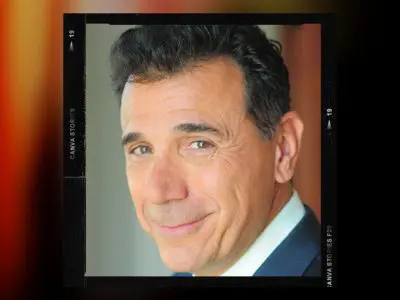How to Inspire Change from Within
w/ Thomas Bertels
Use the buttons above to listen now.
Transcript - How to Inspire Change from Within
Rich, Host: On this episode of team Building saves the World.
Thomas Bertels, Guest: We’re saying, yeah, we kind of realize that people are important, but we’d rather work on everything else. But by making people productive, we’re gonna change our work as done yet. Great. Right, , I didn’t ask for it. I have no idea why I’m doing this. I have no idea who ultimately the customer is.
But every day I got to do a little bit more.
Rich, Host: Is there always room for more?
Thomas Bertels, Guest: There’s always more. There’s always an opportunity to level up.
Rich, Host: Hello team. It’s me, your old friend, Rich Rininsland, host of team building saves the world. The show where I speak to thought leaders from around the world, discussing variable strategies and tools to help you and your team build a better work environment. And today let’s talk about business transformation with Rich Rindensland.
Management consultant, author and founder and CEO of Purpose Works Consulting, Thomas Bertels. The first, I do have to share some love with my supporters at TeamBonding. If your team is ready to experience teamwork through the power of play, then visit teambonding. com to learn more. Now team, join me in welcoming my guest, co author of.
Fixing work, a tale about designing job employees love, Thomas Bertels. Thomas,
welcome aboard my friend. Thank you so much for coming on to the show.
What an applause. I’m not used to this. This is fantastic.
It’s just a million people. I keep chained up under my desk. Their only job is doing, to applaud you. How are we doing this morning? Feeling good.
Thomas Bertels, Guest: We’re doing great.
Rich, Host: Fantastic. So let’s start off by getting to know you as quick as we can.
I do the same thing with every guest. When they first come on the show, please take a second. Tell my team out there a little bit about yourself and that was your journey into corporate consulting.
Thomas Bertels, Guest: So my journey into corporate consulting started when I was 21 and I was just wrapping up my degree, my undergrad degree.
And a professor of mine created this interest in a learning organization. That was a framework that was popular in the early 90s. Peter Senge wrote a famous book, The Fifth Discipline. I was in Germany and my professor encouraged me to write a paper about it. And he liked the paper and he says, yeah, maybe you can turn that into an article.
And So I turned that into an article and then we got a call from a publisher that says like you guys want to write a book about it. And so I was like 22, 23 and I had a business book to my name with my professor and, and, and I thought this is, this is fun. This is interesting. Right? So, and then I got involved in some transformation work at the company where in my first my first real job at Isaiah Brown Bavaria, where I really got to experience transformation from the inside.
And so we had a really fun four or five year journey. And I really fell in love with this notion that you can really help an organization reinvent itself. And, and so I wanted to do more of this work. So I joined a small boutique firm in the States called Rasenstrong and, and really learned consulting from the ground up.
Rich, Host: Nice. And how long now have you been in it? So if you say you started when you were 21, you’re
Thomas Bertels, Guest: Yeah, it’s like close to maybe like three decades.
Rich, Host: Okay. So you’ve been there, you’ve been through, because a lot of this seems to have taken place just within the past couple of decades. The big change towards corporate culture, would you agree?
Thomas Bertels, Guest: I would agree. Yeah, I think it’s like up until the 70s, 80s, right, I think we had a pretty Thank you. mechanistic view of the world for the most part, right? And then we discovered that the pesky people also need to play a role.
Rich, Host: Okay. Now, how do you, first off, how do you define pesky people and what do you define corporate culture as?
Thomas Bertels, Guest: Yeah, I mean, pesky people for me, I think it’s, it’s obviously a little joke there, but I look at this as that we, when we when we try to improve an organization, we oftentimes treat people as the dependent variable, right? We touch everything else first. We’re looking at structure, we’re bringing new technology, we fix the process.
And then we’re kind of turning around and trying to sell that to the people who actually have to live with it, right? We call that sometimes change management. And that oftentimes doesn’t work, right? Because I think we as people, I think we’re terrible machine parts, right? We don’t work at a steady pace, right?
We have we have agency. But that also makes it fun, right? People can also invent business. But I think in the last three decades, as we move towards like more like a knowledge driven economy, I think we’ve realized that, you know, like paying people just for their hands, right, is no longer a viable business model.
We need to just like unlock the gray matter, right? And how do we do that? And how do we really get people to contribute at their, at the best, at the peak, how do we bring out the best in people
Rich, Host: And how was pitching that idea to the corporations of the world back in the day. I mean, how hard was it to try to drag them from that stern rather, you know, goal driven corporate ideal to this ideal of let’s keep your employees happy and working.
Thomas Bertels, Guest: Well, I think everybody, there is no extremes, right? I mean, there’s not people that say, gee, you know, I forget about the humans. Right. Let’s just, I’d work them really, really hard. They’re just a means to an end at the same time, it’s also not a worker’s paradise, right? It’s not, we’re just doing this to provide for people to have a great time.
I think we’re all somewhat in the middle. I think where leaders struggle though, is. I think we really embraced this mechanistic view of the world. We just gotta build a better machine, a better mousetrap in the next iteration. And, and we just don’t realize that, I think some of the things we’re seeing are not bugs of the design, they’re actually features, right?
The way we go about designing organizations is I think very mechanistic. And again, we’re looking at people’s like, as a, you know, as, as a, as, as a car in that theme and, and that just hasn’t worked, right? I think we need something that’s much more dynamic. And allows organizations to be more agile and adaptive.
And I think that requires to engage with people differently, right? That’s why the interest in corporate culture, for example.
Rich, Host: Okay, but was this change looked upon as acceptable or even as something people are looking forward to?
Thomas Bertels, Guest: I think honestly, sorry I didn’t answer your question, you’re absolutely right.
Rich, Host: That’s okay.
Thomas Bertels, Guest: I don’t think it’s changed much in the last 30 years to be blunt about it. I think there were people 30 years ago that realized, right, we, we, we need to engage people differently. And there are people who realize that today, and I would even venture it’s probably the same percentage of people.
Right. And then the rest of the, right, we’re trying to work around people, right? We’re saying, yeah, we kind of realize that people are important, but we’d rather work on everything else, but, right, making people productive.
Rich, Host: Let’s start then at the basis for nowadays, somebody comes to you and their, their organization is, is it having, is it having a growth or it’s having restructuring?
What is it they’re looking for to, for the most part, you know, I’m, I’m not asking you to ask a better answer about any specific clientele, but for the most part, what are companies looking for now? Why do they need you and are their employees in corporate culture actually a part of that process thinking?
Thomas Bertels, Guest: Yeah. So I think what people always want is to your point, right? They come at, they come at it from different angles. Sometimes it is, all right, we cut we cut overall headcount by 20%. So you got to get rid of 20 percent of the work now, right?
Rich, Host: Sure.
Thomas Bertels, Guest: How do we do this? And sometimes it is, hey, we want to do new and wonderful things, but right, we’re not necessarily going to get more money, right?
So how do we achieve more with the same? So it always goes, I think, where people engage with me is when they realize that. How work gets done and what the work is needs to change. And they have like an idea from past experience that that is sometimes not an easy journey, right? People inside an organization is obviously oftentimes very protective of their roles, right?
So there’s benefit of having like an outsider come in yet at the same time. People also inside the organization are going to own this change, otherwise it’s just a consulting exercise that says, right, you know, hire more here and have less over here. And so you got to really get people to the other side of this and actually help them with the transformation.
And that, that’s the space where I operate. I just really guide people through this transformation process and make sure that it’s owned by the folk, by the people inside the organization. It’s not like a consulting product that, you know, sits in the shell.
Rich, Host: How much of that has been them coming to you and saying, I’m having constant rollover of employees. And that them not realizing that the fix is not necessarily replacing the employees with mechanation, but how do you treat the employees?
Thomas Bertels, Guest: For the most part, I think leaders don’t see the turnover. It’s, it’s interesting, right? I mean, some we’ve seen like the, the great resignation and all that. And, and I think we’ve just gotten very comfortable with like a 25, 30 percent turnover level.
In, in, in many right office environments, and I think there’s a huge hidden cost, but it doesn’t show up on the PNL, right? There’s not a line item that says turnover, right? 20 percent of your total cost base, right? So I think in, in where people feel the pressure, though, is to be productive, right? Where the folks on top say, All right, nice job, but now you got to make do with like 20 percent less, like the year of productivity that Zuckerberg, I guess, coined.
So, you know, that, that’s, that’s how people typically get it, that they end up with more work than they have resources. So they got to, they got to reinvent themselves.
Rich, Host: Is, is 25 percent an average number or is that high? And what do we consider an ideal number?
Thomas Bertels, Guest: I think it depends. I mean I’ll give you an example.
I’m working with a client right now. It’s a pharma company, then a regulated space. It takes them forever to train people. It takes six months for like a new hire to become really
effective. And if you got 50 percent turnover, right, you got a problem, right? Because half the workforce turns over. So I think that’s probably too high.
Now, if you have no turnover, that can also become a problem. But in my experience, maybe something like five to 10 percent is where people want to be, right? You want to have a little attrition. But at 25, 30%, I think it becomes maybe it starts to become a problem.
Rich, Host: What’s the reason for even wanting 10 percent of turnover?
I mean, you say that having zero is a problem. Why? Why is that? Because we know it costs thousands of dollars for every employee that has to be, you know, that space needs to be filled. It takes for that six months for that employee to come up to speed, so on and so forth. Why is then zero turnover not ideal?
Thomas Bertels, Guest: Well, you want to get some new ideas, some fresh perspectives from the outside, right? If you just have the same crew for like 10, 15 years, right, it becomes, it just happens, right? Everybody gets that. It becomes very tight knit, and then a new person coming in becomes very difficult for them to penetrate this.
Rich, Host: Hmm. Right. Then
Thomas Bertels, Guest: to become really, I think right. Then you have like these extreme cultures where you have, right. 80% of the people have been there for 30 years, right? And then there’s like three or four people have been there for three months, right? And they, they have a hard time getting traction. So I think you wanna have a little bit of turnover.
Rich, Host: And that brings up an interesting question. When you do come into these companies for alterations for the changes, the upgrades are the employees, you know hesitant or resistant to that process.
Thomas Bertels, Guest: Yeah, always are, right? Wouldn’t you, right? Somebody comes and says, Hey, we’re going to change our work, it’s not yet, great. Right. I didn’t ask for it. So, so, so there is, there’s always, right. People look at this as like, well, didn’t we, I did we not do a good job, right? Why, why do we need external help to do this? So you get a little bit of that. I think also people rightfully so have, have oftentimes had bad experiences, right?
The leader says, Oh, we’re going to do right. Great transformation. It’s all going to be wonderful. And then it turned out not to be so wonderful. Okay. And, and so I think there were oftentimes, right, promises made that maybe were not kept, right? Or there was a, like people, when we do change management, we always try to paint this, this future says, this is going to be fantastic and great.
Well, right. Oftentimes we’ve been through that and it wasn’t fantastic and great and, and nobody like fixed it in the end. Right? So I think people rightfully so are a little bit suspicious. So these processes take a while until people see that this is really serious, right? There’s a positive intent there.
There’s something in it for them too.
Rich, Host: Can you give me a little clearer example on the, the bad experience?
Thomas Bertels, Guest: Well, a bad experience is for example, like we we’ve been gravitating towards technology. Right now we’re all talking about AI, right? And the reality that I see in many organizations is people say, here’s this new system work, the SAP, whatever Salesforce, we’re putting that in.
And then people oftentimes try to put too much in and try to bite off too much and this is going to solve all these problems and invariably, right. At some point in time, people say, okay, we can’t afford this. We’re going to cut back. We just got to get over the goal line with this thing. And there’s a lot of technical debt at the end, right?
There are features, right? That people wanted that are not being realized because it’s just no more money there. Right. Or it gets rolled out and, you know, it sounded good on the drawing board, but in the real world, right? We just bit off too much and now we got to fix it and fine tune it. Right. It’s a little bit like when you do a kitchen renovation, right?
You always have this punch list at the end. Like we say, right? These are all the little things that got to get done. In organizations, I find oftentimes that punch list. It gets thrown away. People say, well, the money is gone, right? IT moves on to the next project. And now you sit there, but the pressure, right?
The performance expectations are not being lowered. You’re still supposed to deliver everything. But they kind of didn’t quite finish the job. And I see a lot of those things, right? So these become then often problems, right? Nobody’s really in charge of fixing this. And so people just suffer through all these little, right?
Inefficiencies that get in the way of doing a good job.
Rich, Host: Is that what you meant by technical debt? Those things that never get completed, never get fixed? Okay. So, if I’m a corporation and I’m thinking maybe a change is necessary, what kind of things should I be looking for that are going to tell me it’s time?
It’s time to grow or to just throw away the old in favor of the new?
Thomas Bertels, Guest: Yeah, I think it’s a little bit like you got to step back and do like a health check, right? You know, you and I would go to the doctor once a year, right? And they go through, I think, the routines, right? And I think you should, you should do the same thing as it goes to work.
And so I think there’s probably two lenses worth looking through. One is if you say, well, I got 25, 30 people in this department, right? That gives me a certain capacity to get things done. I have 60, 000 hours a year, just being simple, right? That I can invest in, in work. Right. Right? And am I making smart investments?
Are the resources really dedicated to the things that drives the most value? And oftentimes you find they’re not, right? They’re tasks that just take an awful, awful lot of energy and time, but they don’t actually add that much to it, right? People spend time endlessly entering data and so forth. So that’s one aspect, right?
Is the, is the work productive? The other one is like, what’s the employee experience, right? And there you really try to understand to what extent do people see this job as something worth doing for the sake of itself, intrinsically motivating, right? It’s, it’s a mission I accept that I bought in, or is this just, Hey, it’s just a, it’s just a job.
It’s an endless flow of tasks. I have no idea why I’m doing this. I have no idea who ultimately the customer is, but every day I got to do a little bit more.
Rich, Host: Okay. I’m glad to hear that the employees are in that consideration. Yeah. Has there, have you ever had an example where the employees were the main consideration?
Thomas Bertels, Guest: Yeah, it’s actually fascinating. Yeah, over the last, I, I haven’t seen that in the last 20 or so years, I haven’t seen the first 20 or so years of my career, but in the last four or five years I’ve really had clients who said, Hey, all right, we want to digitize the work because just the work processes are anachronistic, right?
It’s just, we have people fill out logs and forms and somebody going to scan this in. It just doesn’t make sense, right? We got to upgrade the work. And then you always think, oh, this is an efficiency play, right? So we got to count how many hours we saved and how much that’s worth. And I’ve, I’ve, so I always assume that that’s something we got to do.
And the client said, no, no, no, no, no. It’s like, we know it’s a good idea. We don’t need to justify it. And I’m like, but at some point, the financial people are going to come and they want to know, right, why did you spend all this money? And they’re like, no, no, no. Best assured. We know everybody knows, right?
We got all these high paid scientists. We got to make their work easier to do. Right. I haven’t seen that didn’t show up in the nineties. Didn’t show up in, you know, now people I think are waking up to this and saying. Right. At the end of the day, if people quit their subscription to our work product, right, don’t show up there anymore.
Right. We got nothing gained. Right. So I think let’s keep them hooked and let’s make this a really good, positive work experience. I think people doubling down on that more and more.
Rich, Host: Fantastic. That is so good to hear. And I want to get into even more, but I hope you don’t mind Thomas. I need to step away just for a brief second because I need to tell all my team out there about a company.
I am very proud to be a part of TeamBonding. TeamBonding was founded over 20 years ago with one simple question. How can employees have a great time while fostering strong, authentic bonds between people who work together? No matter where your company is located, TeamBonding offers powerful, engaging, custom team building events designed to get the best out of your team anywhere in the world.
They’ve created a catalog of innovative events using the power of play as a learning tool and tapping into the correlation of work and play. So whether it’s scavenger hunts or jeopardy or so many more, the TeamBonding of activities, whether they’re live, virtual, or hybrid maximizes the impact of team building with an accent on fun to visit TeamBonding.com. To schedule your event now. TeamBonding when you want seriously fun results. And we are back with Thomas Bertels. We are still talking about the growth of the corporation and how the employees actually do factor into that. Now, is it important to the client that they just get your recommendations or you know, had they ever actually just listened to you and said, that’s not what we’re doing.
Or if they bothered to come to you in the first place, the, the entire purpose is yes, we’re ready to embrace the change.
Thomas Bertels, Guest: Yeah. I think by and large, I think people are ready to do this. They’re not looking for like a study to confirm, right. That they have an issue. Oftentimes people are smart enough to realize, okay, I turn over as high morale as low productivity is non existent.
The customers are not happy. We got to do something. Right. So, so that’s typically the point where people arrive. What they are looking for is, I think, two things. One is, I think, they want a a validation, right, that what they’re seeing is real. But then I think they also realize that in order to tackle that, that’s really going to be a team sport, right?
You can’t just have somebody from the outside and say, Oh, just make those three changes and you’re going to be fine, right? They realize this is a lot more like you’re going to a you’re joining a gym and you’re working out with a trainer. Yeah. It’s going to take a while to get results, right? You got to do it yourself.
The alternative is surgery, right? Right. And so, you decide you don’t want surgery, right? You want to build up your fitness. And so that’s typically where people show up, right? So they’re not looking for recommendations that they can put on the shelf. They’re looking actually to implement things.
Rich, Host: Have you ever gotten to the point where you think a corporation has hit its ultimate?
Or is there always room for more?
Thomas Bertels, Guest: There’s always more. There’s always an opportunity to level up. And There has to be, right? That’s the other thing. I think maybe 15, 20 years ago, right? It was okay as long as you delivered the goods, right? And, you know, everything went smooth, right? I think that was okay.
But the world now is, and there’s so much flux in there and people got to constantly justify their existence, right? If you’re like a middle manager in a large company, you kind of like feel that you permanently have like a, you know, bull’s eye painted on your forehead, right? People want to know that, right?
Why are we spending the money in house to do this thing, whatever that is, analytics, right? Customer service and so forth. Why can’t we outsource this, right? Why can’t we use technology? So I think you always got to be I think prepared to justify the investment that the organization is making and the value that you create.
And I think that’s the fascinating part is that, that oftentimes becomes a challenge for people, right? So people, the way the work gets done kind of runs in the background. We only notice it when the engine light comes on, right? It’s like, we’re like, Oh, what is this? Right? And then the second one comes on.
Now I really, right. It’s not going to be just a can of oil. I need to do something here.
Rich, Host: Speaking of which, how do people look at consultants when they reach out to you? Is it, you have the answers we need or is it, ah, let’s just see what he has to say.
Thomas Bertels, Guest: I think it’s a little bit of both. Okay. You’re looking I think people are, it’s a little schizophrenic in a way, because in a way they say, well, we got it. I just got to be a great answer and something we haven’t thought about. And that’s a really high threshold to meet. Right. Because people thought of a lot of things already, they’re running this business day by day. What are the odds that somebody who comes in from the outside, who’s worked with a lot of different companies, is going to see something that they haven’t seen yet, right?
That’s actually a fairly high threshold. The other thing is they also realize that if they find somebody that has like a better answer, that doesn’t really help that much because it makes everybody else in the organization look a little stupid too, right? Because why haven’t we thought of this?
Rich, Host: Right.
Thomas Bertels, Guest: And so, so my approach is really based on how do you tap into all the good ideas. that people already have and combine that with Helping people look at their current reality a little differently and and might have the epiphany themselves. Because it doesn’t matter if I think they should be doing x y d that’s not going to make them do it We all like to do the things that we figured out ourselves.
Rich, Host: Sure.
Thomas Bertels, Guest: So if they figure it out themselves, they are motivated to tackle that That’s the way I
look at it
Rich, Host: Was this objective, this process, what made you decide to found PurposeWorks?
Thomas Bertels, Guest: Yeah, what made me join PurposeWorks is that I really, quite frankly, enjoy working with teams of people and help them get to the next level.
Right. And you see, it’s like when, and there’s always this magic moment where people, right, get off the fence and get in the game, right, and start driving the improvement themselves. And I think it’s absolutely fascinating what people can accomplish and how much transformation they can drive. And, right, oftentimes implement better ideas than I would have.
So I find, I find that’s really ultimately very rewarding because we spend all eight, nine, 10 hours a day at work. Right. So getting to a point where people actually feel that they have agency, that they can do things, they’re not just like, right. It’s like a resource being used up. I think it’s it’s, it’s really, it’s really fun.
It’s also fun for the leaders. Quite frankly, a lot of leaders that I know they really take. They want to develop people, right? I mean, yes, we have objectives. We’ve got to meet on numbers, right? But the things that I think. I find people values when they say, Oh, man, I had this employee 20 years ago, and I really, right.
And now the guy is running the place, right. He’s a CEO, right. People take pride in the accomplishments of others. And, and so I think we’re just tapping into really, I think a feeling that everybody has is like, you know, I want to make a positive impact on the world. Right. And how, right. Why not allow your employees to take a more ownership and have a bigger role in the, in the company.
Rich, Host: Do you find that it’s better to hire from within or is it, or is it sometimes, because I’ve had a lot of guests who’ve talked about that employee who is so good at the job he does, then suddenly you make him manager and we’ve never trained him to be a manager.
Thomas Bertels, Guest: Yeah. Is that, that’s the, that’s the mistake people make.
Yeah. It’s like, and, and I mean, it’s like the hiring from the outside in, right. That’s. Yeah. That also has its downsides, right? Is this person going to work out in this culture? Yeah. Right. And, and we always expect them, right. The person from the outside to have all these great new ideas. And maybe with discounting the people that were inside, right.
For a while, I’ve been trying to do things, but maybe we never let them. Right. So I think there’s, there’s a little bit of that scenario, but I think you’re absolutely right, we don’t prepare people for. Neither for managing people, nor for managing organizations.
Rich, Host: Right.
Thomas Bertels, Guest: So I think as people get to middle management or senior management, they oftentimes can like, like really lose a line of sight to how the work actually gets done and how much time something takes, what the actual experience on the job is.
So one of these super fun things that I do sometimes with clients, when you do this initial diagnostic and you come to all these pain points and they just shake the head and say, this can’t be, it can’t be that bad. And you say, why don’t you like go and sit next to Mary for the next 45 minutes and see what the work actually is.
And they come back and they’re like, Oh my God, we got to fix this right away. But normally they just don’t see it, right? They sit in their office, right? The sky is always blue, right? All the, all the numbers are green, right?
Rich, Host: Everything looks better in the C suite.
Thomas Bertels, Guest: Everything is like 35, 000 feet, right?
Everything looks nice and clean.
Rich, Host: Can you give me an example of some of your better transformations that you’ve seen? Like from the absolute worst to the best. Yeah. Again, without saying the name. Yeah. You don’t have to tell anybody.
Thomas Bertels, Guest: I think there is, you never go from absolutely worst to the absolute best.
I think that’s the reality, right? You gotta climb your way up, right? You gotta get slowly better. But no, it’s like, I’ve seen I think the most impressive clients, quite frankly that I’ve worked with are people that say, everybody tells me this is going well and this agile and flexible. I just want to make sure.
Right? And so I want to make sure that the work is fit for purpose. I love that because it requires a certain humility to ask that question, right? Is it really working for, for everybody else?
Rich, Host: Yeah.
Thomas Bertels, Guest: And, and to get the answers. So that’s, I think in my experience really a quality you gotta have, right? You gotta have this sense of like, not everything is great here, right?
Let’s, let’s, let’s find out. I think one amazing transformation I’ve seen is I worked with a specialty pharmacy a couple of years ago. Specialty pharmacy. If you’re a hemophiliac or you have, you have one, you need one of these modern drugs that need to be infused. It’s a biologic, it needs a nurse, but it’s a complicated thing.
They got to ship it to you in a cold chain. It’s not like you got buying a bottle of aspirin, right? These are million dollar products. And so they got these specialty pharmacies. So the doctor writes you a script, right? And then you call these in and then they kind of make sure you get the benefits and explain the product to you and organize the nurse.
And that tends to be. Historically, that was different departments, right? So if you’re really hemophiliac you get diagnosed, it might take you three or four weeks for the therapy, right? For the treatment to actually start because they got to organize this. And then again, it’s like some of these things are really important medications.
So if you haven’t heard anything for like three or four weeks, you might go to a different pharmacy. Right, that maybe is a little bit faster. So that was their problem, that a lot of people, the script was already written, they said, right, call this pharmacy, and then they would lose the prescription, they lose the revenue, right, so they really want to get all these patients on therapy.
So we ended up redesigning the work, it was quite frankly, it was just like putting Humpty Dumpty back together, you take all these different functions and say, alright, let’s make your team, right? So when the patient calls in, everybody that they got to talk to sits around the table. So it’s not like you sent an email and Johnny from the nursing department is going to call you back.
And, you know, then all of a sudden you can put people on therapy, right? Within 15 minutes, right? Because I call in and just do a warm transfer and say, I got, right, I got little Johnny here. This is what he needs. What do we need to send the nurse? What is the insurance number? Right? And you’re done. And so again, those are right.
It increases the performance of the organization. But it also creates a better work experience, because now we actually own all these patients for this therapy class. That’s our responsibility. And then you realize, once you go down that path, now you don’t need oodles and oodles of supervisors to tell people what to do, when to do it, how to do it, and check whether they’ve done it.
They can kind of manage themselves, because they know they’re responsible for these patients, and they know it’s really important that the medication gets to them, right? So that’s, I think one example of like a work design transformation that that’s like has this criteria or it delivers like a triple win.
The customer is happier, right? The employees are happier and it’s more productive.
Rich, Host: What about a bad change? What about somebody who was looking to do a change that you thought was a poor idea?
Thomas Bertels, Guest: Well, I had one example. This is like an organization, right? That was struggling with being cost competitive.
And so they decided to take away vacation days.
Oh, so if you were there less than five years, that took away whatever, right? Three of your vacation days, right? And you can just think like, like the morale implication, right? I mean, people probably gonna spend 30 days a year complaining about this, right? So I’m not sure how much you really saved, but it certainly, like killed the morale of the place, like, like nothing.
Rich, Host: What did you recommend for them?
Thomas Bertels, Guest: I was like, in that case, that’s like the decision you made. I think you just gotta, then new leadership team comes in, right. And says, Oh my God, fight, we got to do something different.
Rich, Host: What do you do for those companies that are just, they’re growing and growing faster than they’re ready for? I mean, what kind of recommendations you have for them?
Thomas Bertels, Guest: Well, I think you just got to realize that probably what you do and how you do it has to change every year. Right. So you would organize yourself for that, right? So that it’s a little bit more portable, that you have You look at this more in real time, like a stock portfolio, right?
If you’re like in a very volatile market, right? It goes up 50 percent down, like you’re playing with Bitcoin, let’s say. I don’t know if that’s, you know, if that’s something you do. Rich, but but if you do, don’t…
Rich, Host: finances, maybe I would.
Thomas Bertels, Guest: So, so right. If you’re like a Bitcoin, Joe, you got to look at it every, every five minutes.
Fine. If it never changes, why do you buy like an index funds? You look at it like once a year. So in this case, I think you’ve got to be prepared to understand what are we currently doing? What’s right. What does next look like? What does that, right. As we grow and scale to the next level, what could that look like?
And really drive that drive that ongoing transformation.
Rich, Host: I want to wrap up here, but before we do, I just want to say, can you actually send word out there to the people who are thinking maybe it’s time for change? Besides, of course, being that change is not only inevitable, but beneficial. Somebody who’s, who’s waiting on the gas and they just haven’t made that jump yet.
How do you tell them, that future client of yours out there, that now is the time, that it’s better to go now than wait for it?
Thomas Bertels, Guest: Well, I think it goes back to this analogy, right? You bought a car, right? And at some point in time you’re going to have an issue. And then I think you have the fundamental choice whether you keep driving and ignore it or not.
Rich, Host: Okay.
Thomas Bertels, Guest: Right. You don’t do that with your car. Right. Because you know that if you don’t tend to it, plenty of people who do, that’s true, but they will, right. They will keep going and they, right. They burn through the right. They burn up the engine. Right. And, and, and but I think it’s always smarter to tackle problems once they appear.
And, and also fortune favors the prepared. Right. So I think whether you have a need to change right now or not, hopefully you don’t, but it would be good to have a list of opportunities, right? Things that we’d love to do and never takes. What does the next level look like? Right. Where do we go from here? You want to have that point of view ready to go.
Rich, Host: Never take away your employee’s vacation days.
Thomas Bertels, Guest: Yeah. It’s the slightly less popular option.
Rich, Host: Thomas, thank you so much for coming on my friend. I had a great time being here with you today, talking about this. Did you enjoy yourself?
Thomas Bertels, Guest: That was a fantastic conversation. Thank you so much, Rich.
Rich, Host: Thank you. I’m so glad you enjoyed it. And I hope you continue to enjoy it because as I told you in the beginning, it is time for my speed round.
All right, Thomas, as I explained to you before we came on the air for the next 60 seconds, I’m going to be playing some music that just keeps me in mind at the time. While that is going on, I will ask you a series of completely innocuous questions. They’re just meant to be short, fun answers, just for a way for us to get to know you a little bit better.
But if you are feeling competitive at all, the number to beat is 14. Oh, that’s a lot of questions in 60 seconds. You think you can do it? I hope so. All right, let’s find out together. Okay. Once we hear the music, I’ll ask the first question. Here we go. Let’s enjoy.
What’s your name?
Thomas Bertels, Guest: Thomas.
Rich, Host: Do you have any children?
Thomas Bertels, Guest: Yes.
Rich, Host: How many?
Thomas Bertels, Guest: One.
Rich, Host: Do you have any pets?
Thomas Bertels, Guest: Nine. No. Okay.
Rich, Host: What’s your favorite family vacation place?
Thomas Bertels, Guest: Italy.
Rich, Host: Do you have any nicknames?
Thomas Bertels, Guest: No.
Rich, Host: If you could have a nickname, what would you want it to be?
Thomas Bertels, Guest: Something fun and easy.
Rich, Host: What living family member do you most admire
Thomas Bertels, Guest: my mom.
Rich, Host: What do you think is the greatest invention of all time?
Thomas Bertels, Guest: Coffee.
Rich, Host: Who is the funniest person you know?
Thomas Bertels, Guest: My dad.
Rich, Host: What’s one thing you remember from kindergarten?
Thomas Bertels, Guest: Humiliation.
Rich, Host: If you’re feeling bad, what do you do to make yourself feel better?
Thomas Bertels, Guest: Drink more coffee.
Rich, Host: If you could live in a TV family, which TV family would it be?
Thomas Bertels, Guest: The Flintstones. The Flintstones.
Rich, Host: 14. Thomas, you did it. You got there. Well done. We had a little hesitation during one answer and I think if you didn’t, you would have beat it. You would have been at 15, but still fantastic. Thomas, where can my team go and find out more about you, about your company and about this topic?
Thomas Bertels, Guest: Yeah, it’s very simple. You can go to www. purpose. works, W O R K S.
There’s no need to add a com at the end. It’s just purpose. works.
And what about your book? Can they find it?
The book’s called Fixing Work. Again, you can find it at fixing-work.com or you can go to the, to the website. Yeah, the book is a fun fable that basically tells the story of a typical middle manager Who’s faced with employees leaving a lot of work pressure and he finds a better way to get work done. And so that’s the story of Jerry in fixing work.
Rich, Host: Nice. I love it. Oh, and I enjoyed this very much. Thank you again, my friend. I hope to hear from you again soon.
Thomas Bertels, Guest: Thanks so much, Rich. Appreciate it.
And thank you, my team out there. That’s it. We wrap up yet another episode of Team Building Saves the World. If you’ve enjoyed this episode, whether you’re new to the podcast or an old fan of the show, please be sure to share it with everyone you know.
Whether they’re a coworker, friend, or family member, it just helps us to share all this vital information. You can find out all about us, including all past episodes at Teambonding com/podcast. You can also find us wherever you find your favorite podcasts, Google podcasts, Apple podcasts. Where are you going to listen, my friends?
We are going to be there. And don’t forget to look for us on all the social medias at Team Bond Podcast. Leave me a message. Tell me what you liked about the show, what you didn’t like, what you want to hear in a future episode. I want to hear from you. So, before we say our farewells for this episode of Team Building Saves the World, please never forget that if you are within the sound of my voice, you’re on my team now.
And I am forever going to be on yours. So long team. I’ll see you next time.
It’s been said that you learn more about a person in an hour of play than in a year of conversation. So why not put your co workers to play with the help of the team at TeamBonding? TeamBonding was founded over 20 years ago with one simple question. How can employees have a great time while fostering strong, authentic bonds between people who work together?
Their catalog of innovative events include scavenger hunts, Jeopardy, and much more. Each activity, whether live or Virtual or hybrid maximizes the impact of team building with an accent on fun. Visit TeamBonding.com to schedule your event. Now TeamBonding when you want seriously fun results.
May 28, 2024
In this episode, our host Rich is joined by Thomas Bertels, President and Founder of Purpose Works Consulting, to answer the question, “what is business transformation?” They dive into the importance of inspiring change from within by starting at the employee level rather than relying heavily on strong leadership. He explains how healthy employee turnover is key to a strong business transformation strategy, and the typical approach his consulting firm takes to build a personalized framework for each business. Tune in to get first-hand insights from an expert in the art of business transformation and start inspiring change within your own organization.
About Thomas Bertels:

" There's always this magic moment when people get off the fence, get in the game, and start driving the improvement themselves. And I think it's absolutely fascinating what people can accomplish and how much transformation they can drive. And they oftentimes implement better ideas than I would have. "- Thomas Bertels
Get more human resources and leadership advice.
Less drama? Greater teamwork and job satisfaction? TeamBonding is here to help you build a stronger and happier team. Subscribe to get our team building podcast and thought leadership blogs sent straight to your inbox.















